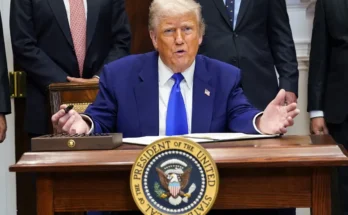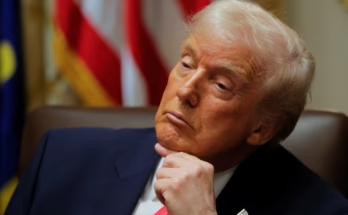At the Kennedy Center vigil for Charlie Kirk, Robert F. Kennedy Jr. stunned attendees with a tribute that quickly drew scrutiny. Speaking to a crowd mourning the conservative activist’s fatal shooting in Utah, RFK Jr. described Kirk as his “soulmate” and “spiritual brother,” claiming they first met in 2001—when Kirk would’ve been just seven years old. The health secretary recounted their supposed podcast encounter and a blossoming friendship that, he said, led to his political “unification” with President Trump. The timeline baffled listeners, sparking online ridicule and raising questions about RFK Jr.’s grasp on reality.
Kennedy’s speech veered into deeply personal territory, invoking his niece’s admiration for Kirk and her decision to pack a Bible for college “to live like Charlie.” He praised Kirk’s influence on youth, calling it “a great thing for our country.” RFK Jr. then recalled a conversation with Kirk about death and the dangers of challenging entrenched interests. “Are you scared to die?” Kirk had asked. Kennedy replied, “There’s a lot worse things than dying,” citing the loss of constitutional rights and the threat of children “raised in slavery”.
The tribute, intended to honor Kirk’s legacy, instead ignited controversy. Critics mocked Kennedy’s timeline and questioned the sincerity of his claims. Social media erupted with disbelief, noting that Kirk’s actual rise to prominence came years after the alleged 2001 meeting. Some accused RFK Jr. of exploiting the moment for political theater, while others lamented the surreal tone of the vigil itself—where Trump reportedly focused more on his ballroom construction than Kirk’s death. The disconnect between leadership and authentic mourning was palpable.
Despite the backlash, Kennedy’s remarks underscored Kirk’s symbolic role within the MAGA movement. Flags flew at half-mast, and calls for a Capitol statue echoed through conservative circles. Yet the memorial also exposed a deeper unease: the struggle to humanize a polarizing figure without descending into mythmaking. RFK Jr.’s tribute, bizarre as it was, reflected a broader tension—between reverence and reality, grief and grandiosity. In death, Charlie Kirk became not just a martyr, but a mirror for the movement’s contradictions.


